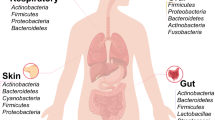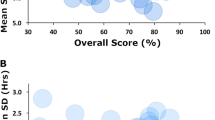Abstract
SWEAT collected from normal male subjects carrying out work at high temperatures and humidities was analysed for chloride, lactic acid and urea. The osmotic pressure, as estimated by the freezing point in two hundred samples, is found to be accounted for by the osmotic pressure of these three constituents added together to the extent of about 95 per cent. Sodium chloride, on the average, accounts for about 80 per cent ; lactate accounts for about 11 per cent.
This is a preview of subscription content, access via your institution
Access options
Subscribe to this journal
Receive 51 print issues and online access
$199.00 per year
only $3.90 per issue
Buy this article
- Purchase on Springer Link
- Instant access to full article PDF
Prices may be subject to local taxes which are calculated during checkout
Similar content being viewed by others
References
Dill, D. B., Jones, B. F., Edwards, H. T., and Oberg, S. A., J. Biol. Chem., 100, 755 (1933).
Bunting, H., Wislocki, G. B., and Dempsey, E. W., Anat. Rec., 100, 61 (1948).
Author information
Authors and Affiliations
Rights and permissions
About this article
Cite this article
WEINER, J., VAN HEYNINGEN, R. Lactic Acid and Sweat Gland Function. Nature 164, 351–352 (1949). https://doi.org/10.1038/164351b0
Issue Date:
DOI: https://doi.org/10.1038/164351b0
This article is cited by
-
Physiological mechanisms determining eccrine sweat composition
European Journal of Applied Physiology (2020)
-
Lactate in human sweat: a critical review of research to the present day
The Journal of Physiological Sciences (2012)
-
Die inhaltsstoffe des normalen stratum corneum und callus menschlicher haut
Archiv f�r Dermatologische Forschung (1971)
-
�ber die Aldolaseaktivit�t der Haut
Archiv f�r Klinische und Experimentelle Dermatologie (1956)
Comments
By submitting a comment you agree to abide by our Terms and Community Guidelines. If you find something abusive or that does not comply with our terms or guidelines please flag it as inappropriate.



